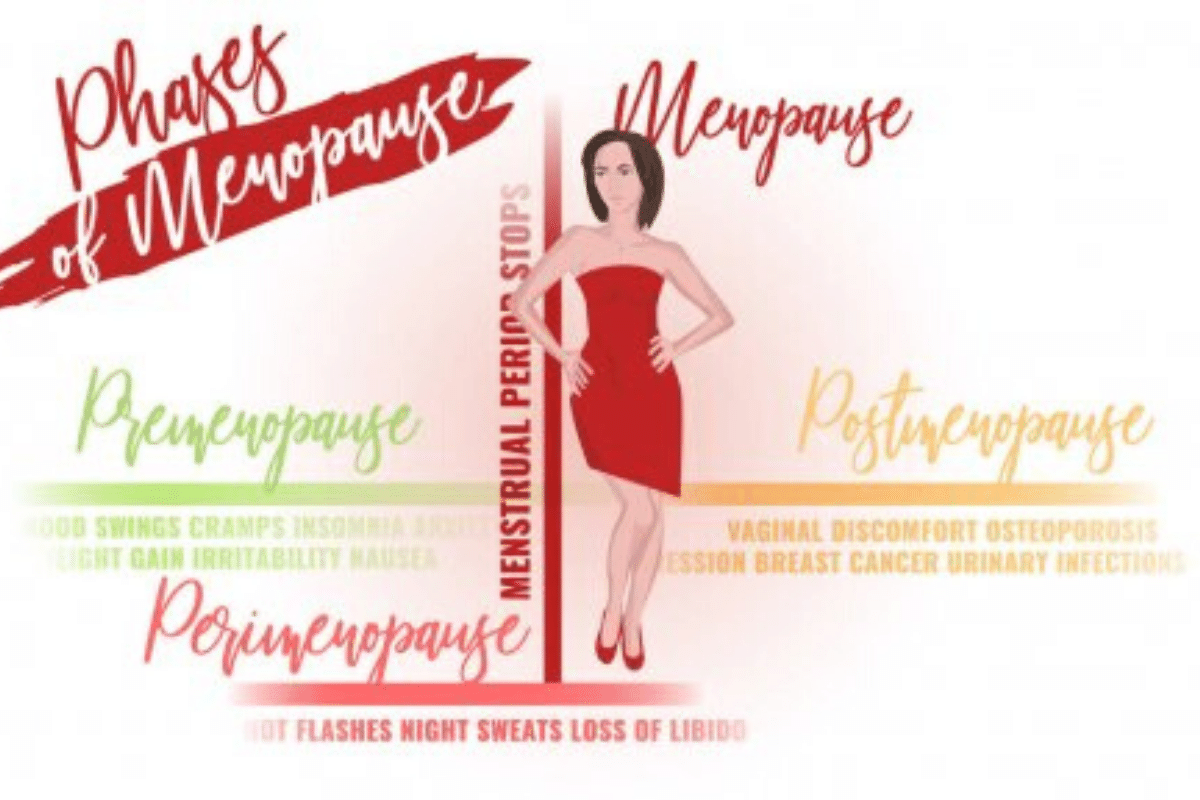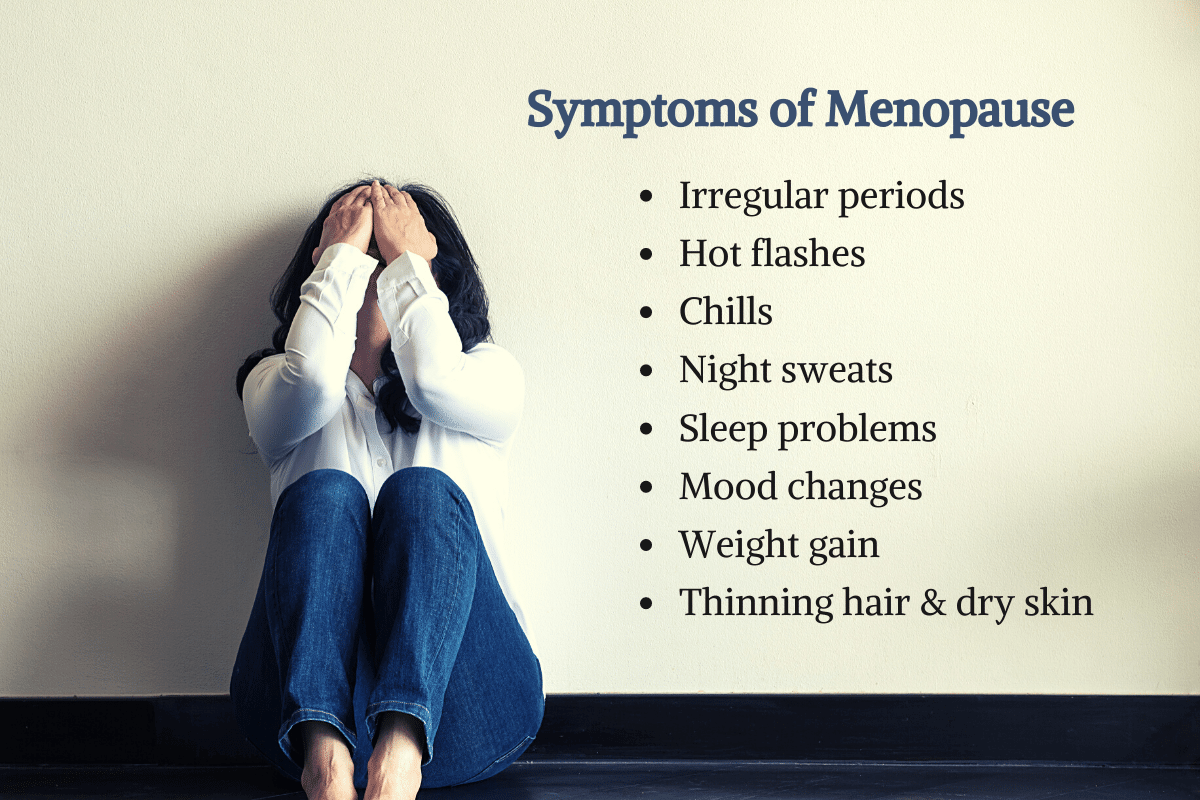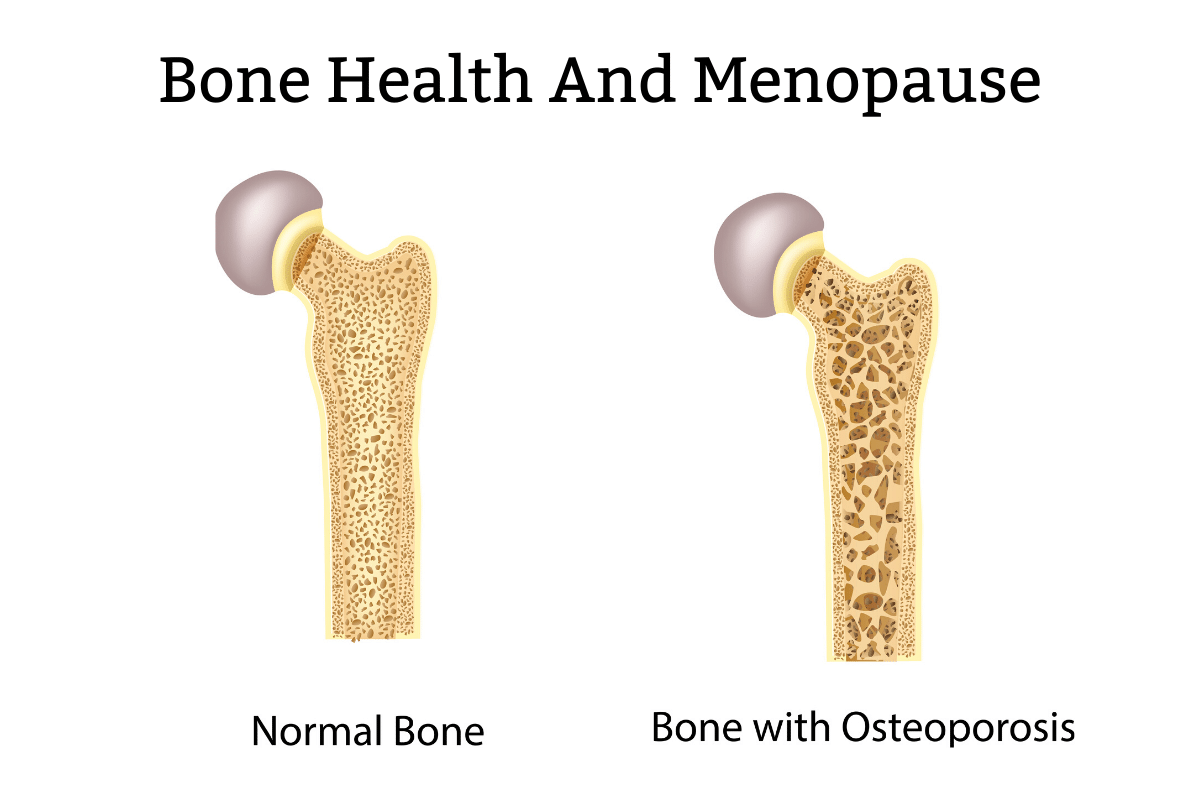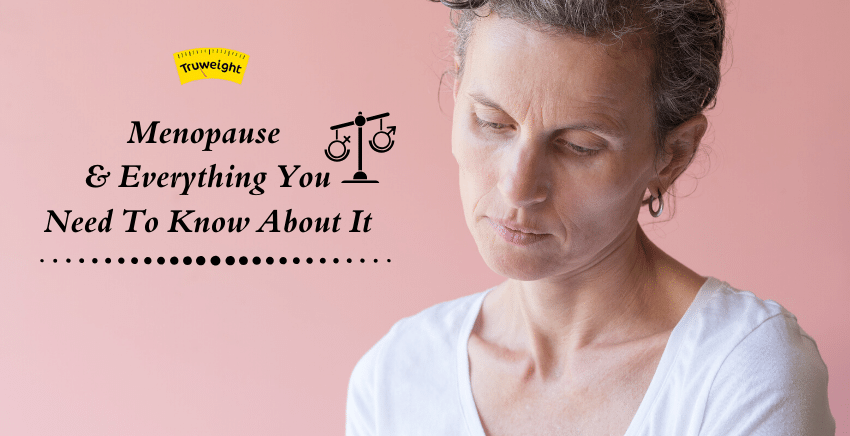Health
Menopause And Everything You Need To Know About It
Medically reviewed by Dr. Shunmukha Priya, Ph.D. in Food Science and Nutrition
Menopause is completely normal, and it is a natural part of aging in a women’s life. When you enter your 40’s, production of estrogen in your body starts decreasing which results in irregularity of the menstrual cycle and eventually you no longer menstruate. If your menstruation cycle stops with no periods for 12 months, that means you have reached your menopause stage.
Menopause And Why Does It Happen?
Generally, menopause occurs naturally when you are in your early 50’s and that is not caused by surgery or any other medical condition. It is a common condition that appears in a woman with growing age.
It is a stage where women no longer have menstruation cycles. They also experience multiple changes physically and mentally as well.
As menopause nears, the ovaries produce less estrogen hormones. When the estrogen hormones decrease, your menstrual cycle starts to change. Initially the cycle becomes irregular and then stops permanently.
The symptoms you experience during menopausal stages like perimenopause, menopause and post menopause, are nothing but the fact that your body is getting adjusted to these changes.[1]
[sc name=”immunity-quiz”]Causes Of Menopause
Generally, menopause is not caused by surgery or any medical conditions, it is natural. It is something every woman goes through in her life after she nears mid of her 40’s.
Menopause results from the natural fall in the number of reproductive hormones, when the ovaries start producing less estrogen and progesterone hormones. This regulates the menstrual cycle; hence fertility also decreases.
Menopause can also occur before the expected age for it to happen and this is known as Premature Menopause.
Perimenopause VS. Menopause VS. Post Menopause
Menopause in a woman occurs in three stages:
- Perimenopause
- Menopause
- Post Menopause
Perimenopause is the first stage in the process of menopause. This can start eight to 10 years before menopause.

Menopause is a stage where the symptoms are highly visible, and your menstrual cycle or periods stop completely. Post menopause is the stage after menopause.
1. Perimenopause
The length of each stage of the menopause transition can vary for each individual. The average length of perimenopause is about four years.
Some women may only be in this stage for a few months, while others will be in this transition phase for more than four years. If you have gone more than 12 months without having a period, you are no longer perimenopausal.
However, if there are medications or medical conditions that may affect periods, it can be more difficult to know the specific stage of the menopause transition.
2. Menopause
It is a stage where your periods/menstrual cycle stops completely. You no longer have 12 months periods. You also experience symptoms like hot flashes, fatigue, weight gain, insomnia etc.
This is completely normal when you reach your 40’s and occurs naturally without any medical interventions.
3. Post Menopause
Post Menopause is a stage after menopause. Here you see the symptoms gradually decreasing its intensity and lasts around 4-5 years. There are multiple home remedies and exercises that help you combat the symptoms and neutralize your mood.
Premature Menopause
Some women can experience menopause earlier than expected. That can be because of any surgical interventions like removal of ovaries or if the ovaries are damaged. Menopause that occurs before you turn 40 or even younger can be considered as Premature Menopause.[2]
How Long Does Menopause Last?
Once you are in your menopause (that is you have no period for 12 months) you go through many body changes naturally. You experience multiple symptoms and you jump on to your post menopause gradually.

The symptoms experienced during menopause may continue for an average of four to five years, but they decrease in frequency and intensity. Some have reported to have experienced the symptoms for longer than expected.
The most common symptoms include: Hot flashes.
Symptoms
When you reach menopause stage, you will experience signs and symptoms that are clinically recorded to prove that one has reached her menopause age.
- Irregular periods: Initially you tend to experience irregular periods. Later your periods (Menstrual Cycle) completely stops.
- Hot flashes: You start feeling warmth, mostly in your face, neck or chest area.
- Chills: Tend to experience chillness irrespective of the weather.
- Night sweats: Sweating in the night while you sleep is common during menopause.
- Sleep problems: Insomnia occurs during menopause leading to health issues.
- Mood changes: Mood swings become more common.
- Weight gain and slowed metabolism: Metabolism decreases and hence you start gaining weight with bloating in your waist and thighs.
- Thinning hair and dry skin: Acute hair fall and dry skin.
- Joint Pains /Knee pain /Back Pain and eventually osteoporosis
These symptoms are different in every individual. Sometimes you may not experience these symptoms at all.[2]
Factors That Lead To Metabolic Changes In Menopause
- Ageing: Women generally become less active, physically as and when they turn towards their 40’s to 50’s.
- Estrogen: Reduction in estrogen (hormone) affects your body negatively with inability to burn fat and hence stores it in irregular areas.
- Cortisol: Chronic stress, results in the continuous release of cortisol (hormone)that is nothing but a stress hormone. This particular event has been associated with fat accumulation in the midsection of women.
- Fat distribution: While a decline in reproductive hormones (follicle-stimulating hormone, luteinising hormone, estrogen, and progesterone) in menopause play a role in many midlife women’s transformation from a pear-shaped figure to an apple shaped figure
- Leptin: Low levels of leptin, which is a hunger hormone, signals the brain to increase the feelings of hunger. This triggers the body to eat more which in turn makes the body burns less energy. Women, in general have higher leptin levels than men; this makes women naturally carry a more fat percentage.
- Insufficient exercises – Women with sedentary lifestyles can gain weight, which may exacerbate menopausal symptoms.
How Is Menopause Diagnosed?
When you experience irregularity in your periods, it is important to consult a doctor before you assume it to be common or unrelated. At first your doctor might order for a blood test to be done to check your FSH (follicle-stimulating hormone) level and estrogen.
During menopause, your estrogen level decreases and FSH level increases, showing clear signs of perimenopause.
Once you tested positive for menopause, you might move on to the next steps of precautions or medications.
Home Remedies And Lifestyle Changes For Menopause
- Eat more protein: Protein consumption relaxes your weight gain and provides energy to overcome fatigue. Protein rich foods such as lean chicken, fish, milk, cheese, nuts and eggs can be added to your diet.
- Eat foods rich in phytoestrogens: Foods such as soybeans and soy products, flaxseeds, wheat berries, fenugreek, oats, barley are rich in phytoestrogens and they help reduce symptoms of menopause.
- Eat calcium and vitamin D rich foods: Calcium rich foods like milk, cheese and yogurt, all dairy products are to be consumed. Also, foods that are rich in Vitamin D such as fatty fish (tuna, salmon, mackerel), egg yolks, cheese, cereals etc are essential for your body during menopause.
- Eat more fruits and vegetables: Vegetables that are rich in minerals, vitamins and proteins are important to be added in your diet. You can follow Possible plate that contains 50% veggies, 25% proteins and 25% carbohydrates.
- Black cohosh: This herb helps reduce hot flashes caused during menopause. It relaxes your mind and helps sooth your warmth due to hot flashes.
- Magnesium: Foods that are rich in magnesium such as green leafy vegetables, nuts and seeds, chickpeas, figs, avocado, seafood etc are helpful during your menopausal stage.
- Controlled breathing: Practice slow breathing everyday, this helps you sleep well and maintain a good mood. It also helps you find relaxation from hot flashes.
- Aim for a healthy body weight: This is a particularly important measure. Maintaining proper weight during this time is necessary because if not looked upon you might bloat in all over the body.
- Spend time with family: During menopause it is common to go through an emotional transition. Spend time with your family. Share with them about your going through and changes that are happening within you.[3]
What You Should Avoid During Menopause?
-
Foods which trigger menopausal symptoms: Foods that are spicy and high with salt content; Sugar, alcohol and caffeine can induce menopausal symptoms. Avoiding these foods can reduce menopausal symptoms.
-
Skipping meals: Again, do not skip your meals. Skipping meals majorly leads to bloating and weight gain. It might affect you mentally with increased stress and anxiety.
Bone Health And Menopause
Bone health has to be maintained by females especially when they are reaching menopause. Estrogen, a hormone in women which protects bones, decreases sharply when women reach menopause causing bone loss.
Women tend to have smaller and thinner bones than men. Nearly one in two women above 50’s could break their bones because of osteoporosis. Hence, chances of women developing osteoporosis increases when they reach menopause stage.[4]

About 15% are lactose intolerant, so it makes it difficult to get enough calcium. Healthy lifestyle habits can help to protect your bones and decrease your chance of getting osteoporosis.[5]
Diet And Exercises For Bone Health
1. Calcium
Calcium is essential to build your bones strong. Add calcium rich foods like milk, cheese and yogurt, all dairy products in your diet. This helps strengthen your bones and improve health.
2. Vitamin D
Vitamin D plays an important role in protecting bones by helping the body to absorb calcium and by supporting muscles. A 15 to 20 mins exposure to sunlight is beneficial for the conversion of Vitamin D. Also in the diet include Foods such as Fish, fortified milk, eggs, mushrooms also are dietary sources of vitamin D. Consult with your physician and take supplements if required.
3. Exercises
Exercises such as low impact aerobics, walking, elliptical training; Muscle strengthening exercises such as Weightlifting can help you during menopause. Also avoid high impact exercises.
Conclusion
Menopause is not something you have to be stressful about. It is natural. Every woman goes through this stage and it is painless. With some measures and precautions, you can nail this stage of your life.
